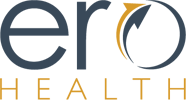Whether you are a practice or a third-party vendor, it’s become essential to export data for quality reporting. Programs like CPC+, MIPS and MACRA have measures practices must follow and for which data needs to be reported. Quality reporting helps practices get a better view of how they’re doing against the measures, and it can be frustrating when the data is difficult to retrieve.
There are hundreds of measures for patients that practices can record, but practices typically report 15-30 measures, sometimes more. Measures practices take for patient care can include:
- Depression screening
- Allergies
- Diabetes
- Hypertension
- Labs
- Tests
- Personal measures
How Else is Quality Reporting Used?
Governmental reporting programs aren’t the only programs that want to see quality reporting. Insurance companies use the data from quality reporting for patient population management. Major insurance providers in many states have started asking all of the practices they serve for this data. Having diagnoses for an entire geographical region in one database can be extremely useful for insurance companies. They can then monitor population health and determine what percentage of the population have certain conditions.
At Ero Health, we’ve been doing these sorts of exports for over ten years. We extract and translate data into a format that is compatible for import into a common database. Quality reporting is important to ensure diseases are under control. They help track what treatments are most successful, and whether or not a provider is fulfilling their role to help patients control chronic diseases.
What’s the difference between exporting and reporting in this case? From the governmental standpoint, it’s the same thing in this case. Once exported, the data may first go to an Account of Care Organization (ACO) which completes the quality reporting.
While eClinicalWorks does have some of this capability, third-party management can sometimes provide a clearer view of what’s really happening.
How Quality Reporting Benefits You
While gathering and reporting quality data can sometimes seem difficult and time consuming, quality reporting can easily segue into a better overview of your own population’s health. Not only does this benefit your patients, it can benefit your organization’s revenue stream as well. For instance, you could contact every female patient you have over 40 reminding them to have a mammogram. This not only improves their health, it also potentially increases your practice’s finances. Instead of using the data reactively, you can use it proactively. There’s no reason why focusing on care can’t also mean profitable business practices.
Quality reporting is more than just complying with government regulations; it’s about improving the lives of your patients, and improving the way you do business. If you need help with your quality reporting, Ero Health can help. Contact us today.


